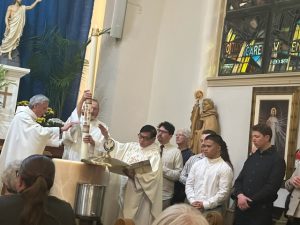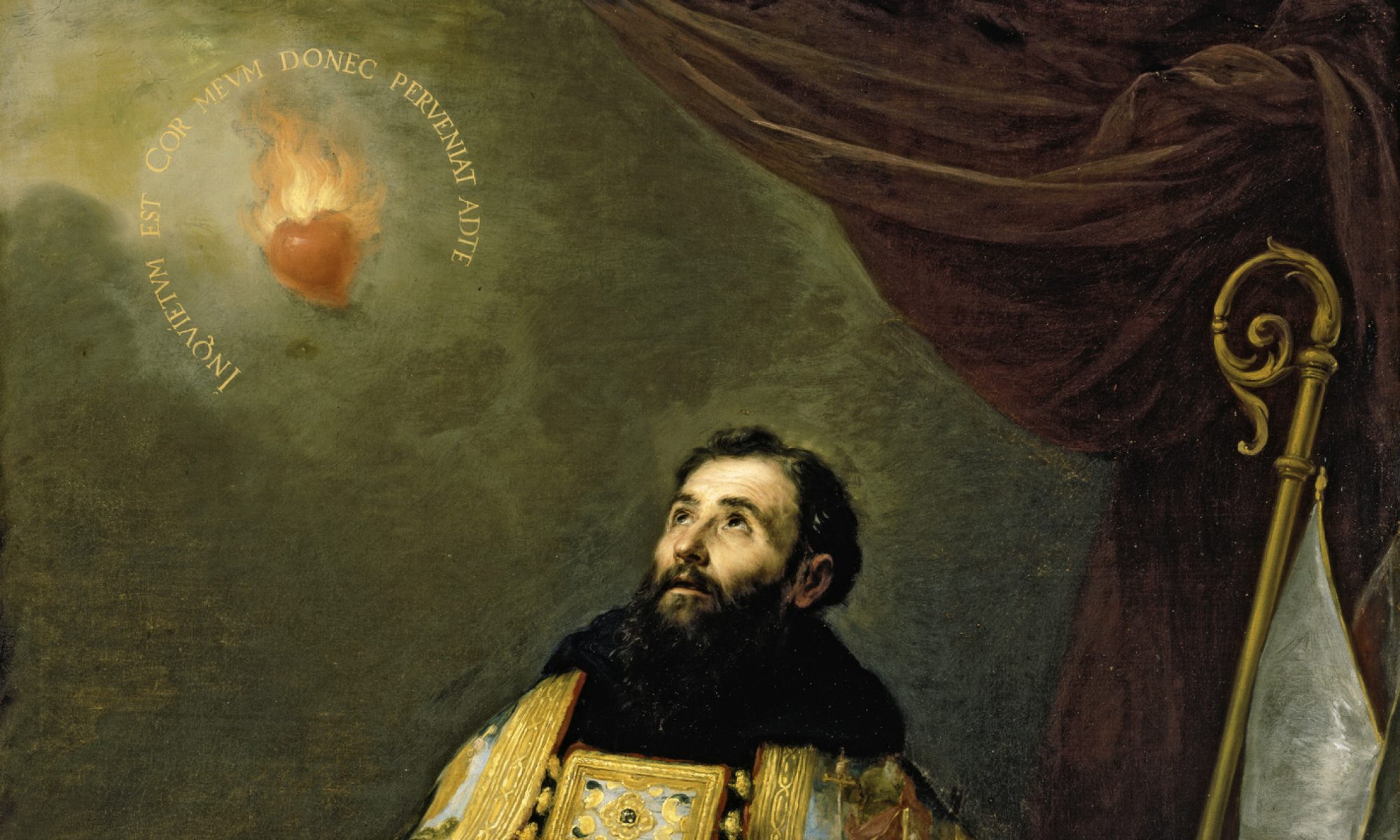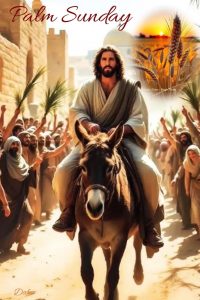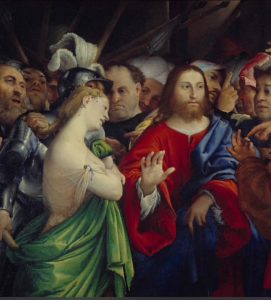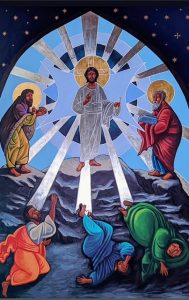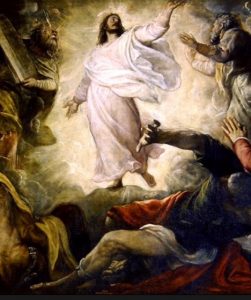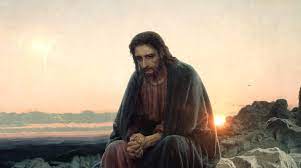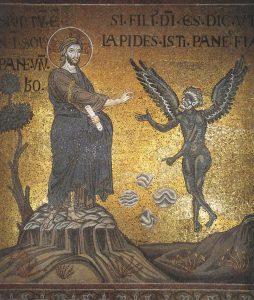Happy Easter to everyone! Christ has Risen, Alleluia!
Our Father Saint Augustine proclaimed that, “We are Easter people, and our song is Alleluia.” He is saying that Alleluia is therefore a song of pilgrims, of those en route, who know that this earth offers no permanent dwelling-place and whose desires are towards God for eternal life.
Today, it is with great jubilation to share “New Life” in Christ Jesus who has risen from the dead. Easter is a celebration of all God’s creation, enjoying the new life we see around us. Trees are blooming with lovely and colorful flowers, the leaves are turning green, and fruit trees’ small buds are starting to open; thus, new life of nature is bursting forth after the doziness of winter. We sing in unison with angels in heaven rejoicing the solemn event of Easter, for without Christ’s resurrection our faith is futile, and we remain buried inside the tomb.
We heard from the Book of the Acts of the Apostles, the amazing testimony of Peter to Cornelius. Peter was summoned by a centurion by the name Cornelius who had a vision while praying. Cornelius answered: “Three days ago I was in my house praying at this hour, at three in the afternoon. Suddenly a man in shining clothes stood before me and said, ‘Cornelius, God has heard your prayer and remembered your gifts to the poor. Send to Joppa for Simon, who is called Peter. Now we are all here in the presence of God to listen to everything the Lord has commanded you to tell us.” (Acts10:30-34) So, Peter related the life of Jesus. He also mentioned to his listeners Jesus’ suffering, passion, and death, then the proclamation of the true identity of Jesus, who heals all kinds of diseases. Upon hearing Peter’s testimonies, he interpreted Cornelius’ vision that deeply moved the centurion and others listening to him. Eventually, Cornelius and others asked to receive baptism. This is a beautiful story to read for the next two months about the early Church from the Acts of the Apostles. I suggest that you spend your time reading this beautiful scriptural passage in order to increase your faith through the experience of all new converted disciples of the Risen Lord.
It is interesting to also read the gospel today. St. John writes this account beautifully, saying that “Mary Magdala came to the tomb early in the morning, while it was still dark, and saw the stone removed from the tomb.” (v.1) So, indeed Mary Magdala comes to the tomb at dawn, the light is slowly coming, Jesus having risen. The mentioning of “while it was still dark,” presupposes the state of Mary Magdala’s heart’s disposition being in grief and sad…she is still in the dark about its true meaning.
Mary Magdala runs towards Peter and the “disciple whom Jesus loved,” moving slowly into something they are wondering about. They both ran but the other disciple ran faster than Peter and arrived at the tomb first. He bent down and saw the burial cloths there, and the cloth that had covered His head, not with the burial cloths, but rolled up in a separate place.” In this particular verse, John just bent down and saw the burial cloths,” which manifests the disposition of his heart that even before coming to the tomb he knew exactly about Jesus’ resurrection because John had a special and faithful relationship with the Lord. Because of John’s profound knowledge, Jesus is not anymore in the tomb.
Mary Magdala, Peter, and John believe what they see and begin living what they believe. This is exactly how history began becoming the Good News of our Christian Faith. These two runners did not just sit down and try to figure this whole thing out without sharing what they have seen during the first day of that week. They remembered, they believed, and they left Jesus’ tomb and began to walk with the living God after the great resurrection event.
As disciples of the Lord, we too continue to bring the Good News of the Lord’s Resurrection. It gives us profound assurance that Jesus is true and a living God who walks with us and offers us new life, not only with Jesus being raised from the dead, but we too have been raised from death and darkness into the “new life” we receive through faith and baptism.
I therefore conclude this with the words of our Father St. Augustine’s well-known words with which he ended his work, The City of God: “Let us make of these days a symbol of that day without end. Let us make of this mortal place a symbol of time without end. Let us hurry to get to the eternal house. Blessed are those who live in your house, Lord; they will praise you for ever and ever. Thus says the law, the Scriptures, and the Truth: we are meant to arrive at the house of God, that is, Heaven. There we will praise God, not for fifty days but – as it is written- for ever and ever. We will see him, we will love him, and we will praise him; neither shall sight vanish, neither shall love run out, neither shall praise fall silent; everything shall be eternal, nothing shall come to an end”. (s.254,8)
We will enjoy God and praise Him for all eternity. In our participation in the Triduum Liturgical activities, we put our time with hope and comfort so that we can continue to love, praise, and contemplate this Easter season about the promise of God’s eternal life.
Again, happy Easter and may God bless you.
Fr. Arlon, osa
————–
El Dictado del Corazón
Domingo de Pascua por la Mañana
Lecturas:
- Hechos 10, 34a. 37–43
- Salmo 117, 1–2. 16–17. 22–23
- Colosenses 3, 1–4
- Juan 20, 1–9
¡Feliz Pascua a todos! ¡Cristo ha resucitado, Aleluya!
Nuestro Padre, San Agustín, proclamó una vez: “Somos un pueblo pascual, y nuestra canción es el Aleluya”. Él nos recuerda que el Aleluya es el canto de los peregrinos—de aquellos que están en camino, que comprenden que esta tierra no ofrece un hogar duradero, y que anhelan la vida eterna con Dios.
Hoy, nos alegramos con la Nueva Vida de Cristo Jesús, quien ha resucitado de entre los muertos. La Pascua es una celebración de toda la creación, al ver cómo brota la vida nueva a nuestro alrededor. Los árboles florecen con vivos colores, las hojas verdes regresan, y los brotes de los árboles frutales comienzan a abrirse. Después del letargo del invierno, la naturaleza estalla de nuevo. Nos unimos en un solo coro con los ángeles del cielo, regocijándonos en este evento solemne y triunfante. Sin la resurrección de Cristo, nuestra fe sería en vano, y permaneceríamos sepultados en la desesperanza.
En el Libro de los Hechos, escuchamos el poderoso testimonio de Pedro a Cornelio. Cornelio, un centurión romano, tuvo una visión mientras oraba:
“Hace tres días, a esta misma hora, a las tres de la tarde, yo estaba en mi casa orando. De pronto, se presentó delante de mí un hombre con ropa resplandeciente y me dijo: ‘Cornelio, Dios ha escuchado tu oración y ha recordado tus limosnas a los pobres. Manda a buscar a Simón, llamado Pedro, que está en Jope. Ahora, pues, todos estamos aquí en la presencia de Dios, dispuestos a escuchar todo lo que el Señor te ha ordenado que nos digas.’” (Hechos 10, 30–34)
Pedro comparte entonces la vida, sufrimiento, muerte y resurrección de Jesús, declarando su identidad divina y poder sanador. Cornelio y los que están con él se conmueven profundamente y piden ser bautizados. Esta es una historia hermosa tomada de los Hechos de los Apóstoles, y los animo a leer este libro sagrado en las próximas semanas para fortalecer su fe mediante el testimonio de la Iglesia primitiva y los nuevos discípulos del Señor Resucitado.
El Evangelio de hoy, según san Juan, es igualmente conmovedor. Juan relata cómo “el primer día de la semana, María Magdalena fue al sepulcro muy de madrugada, cuando todavía estaba oscuro, y vio removida la piedra que cerraba el sepulcro.” (Juan 20, 1)
María llega al amanecer, un momento en el que la luz apenas comienza a surgir—simbolizando su tristeza y oscuridad espiritual. Todavía se encuentra en las sombras del dolor, sin comprender aún el significado completo del sepulcro vacío.
Ella corre a contarle a Pedro y al “discípulo a quien Jesús amaba.” Ambos corren hacia el sepulcro, y el discípulo amado llega primero. Se inclina, ve las vendas, y cree. Este gesto refleja su disposición interior—su fe ya sintonizada con el misterio de la Resurrección. La relación profunda y fiel de Juan con Jesús le permite reconocer la verdad incluso antes de entrar al sepulcro.
María, Pedro y Juan ven, creen, y comienzan a vivir lo que ahora saben que es verdad. Desde ese momento, la Buena Nueva comienza a difundirse. No se quedan en el sepulcro tratando de entenderlo todo—salen, caminando con el Señor Resucitado.
Como discípulos de Cristo, también nosotros estamos llamados a proclamar la Buena Nueva de Su Resurrección. Su victoria sobre la muerte nos asegura que Él está verdaderamente vivo, caminando con nosotros, ofreciéndonos nueva vida. No sólo Jesús fue resucitado de entre los muertos, sino que también nosotros somos resucitados—del pecado y la oscuridad hacia la nueva vida que recibimos por la fe y el bautismo.
Concluyo con las hermosas palabras de nuestro Padre San Agustín, del libro La Ciudad de Dios:
“Hagamos de estos días un símbolo de aquel día sin fin. Hagamos de este lugar mortal un símbolo del tiempo sin término. Apresurémonos a llegar a la casa eterna. Bienaventurados los que habitan en tu casa, Señor; te alabarán por los siglos de los siglos. Así lo dice la ley, las Escrituras y la Verdad: estamos destinados a llegar a la casa de Dios, es decir, al Cielo. Allí alabaremos a Dios, no por cincuenta días, sino—como está escrito—por los siglos de los siglos. Lo veremos, lo amaremos y lo alabaremos. No se acabará la visión, no se agotará el amor, ni se silenciará la alabanza. Todo será eterno; nada llegará a su fin.” (Sermón 254, 8)
Nos regocijaremos en la presencia de Dios y lo alabaremos por toda la eternidad. Al participar en el Triduo y continuar durante el tiempo de Pascua, que la esperanza y el consuelo nos llenen, y que crezcamos en amor, alabanza y contemplación de la promesa de vida eterna de Dios.
Una vez más, ¡Feliz Pascua, y que Dios los bendiga!
P. Arlon, OSA
